When one digs into the stories of history’s most catastrophic events, a peculiar pattern emerges—a pattern of convenient absences and last-minute changes that defy statistical probability. These uncanny "coincidences" seem to shield certain powerful individuals while devastating others, often leaving the survivors or their close associates poised for significant gain.

The Angola horror train wreck of 1867 is just one example in a long line of these enigmatic events, rife with unanswered questions and eerie connections to the rise of power among America’s elites.

But it’s hardly an isolated case. Let’s examine the details of Angola’s horrific disaster and its strange links to Standard Oil, the railroads, and the banking industry, while exploring the broader pattern of similar events throughout history.
The Angola Train Wreck and the Rockefeller Connection
On December 18, 1867, the Buffalo and Erie Railroad train derailed on a bridge near Angola, New York. The rear car plunged into a deep gorge, catching fire upon impact, killing 49 people in one of the deadliest train accidents of the 19th century.
Among the victims was Stephen W. Stewart, a banker and railroad executive. But another prominent figure—John D. Rockefeller then in his late twenties—just happened to miss that train.
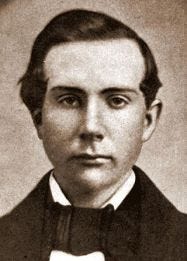
Rockefeller, who would later become synonymous with wealth, monopolistic practices, and Standard Oil, was slated to be aboard but did not make the trip.
No one, in the end, knows exactly how many victims of the Angola Horror were laid to rest that day.
This "near miss" isn’t simply a historical footnote. Did Stewart’s death clear the way for Standard Oil to consolidate power in the rail industry, paving the way for Rockefeller’s eventual dominance. Stewart had been a competitor, not just in railroads but in banking, an industry intrinsically tied to the financing of rail infrastructure. It’s hard to ignore how his sudden death may have eliminated a key obstacle in Rockefeller’s path to monopoly.
John was running late, and the timing could not be worse for him. He was preparing for the biggest meeting of his life. It was a meeting with one of the most important men in the country, and the outcome would decide the fate of his fledgling business. Already on a very tight schedule, it seemed as if one thing after another was conspiring against him. Little did he know how much fate was working to spare his life and to transform an entire nation.
John’s train was scheduled to leave Cleveland’s Union Station at 6:40 a.m. The 28-year-old was customarily punctual, but this morning he was running late. Part of the problem was that he planned to see relatives while in New York. It being so close to Christmas, he took some extra time to pack some gifts for family members. His luggage was ready to go, but John still had to say goodbye to his wife and children. He sent his bags ahead of him to the train station, with plans to follow immediately behind them.
It seemed unusually hard to say goodbye to his family. He and Laura had been married for three years, but they still felt like newlyweds. Then there was their adorable one-year-old daughter, Elizabeth. Leaving her behind was almost unbearable. Reluctantly, he pulled away from their embraces so he could make the vitally-important meeting in New York City.
Now, as he hurried toward the train station, he regretted taking that extra time at home. One thing after another tacked minute after minute to his commute. Now he wished he had left the day before, on December 17. As important as his meeting was, it would not do to let things come down to the wire. He thought he planned accordingly. His train was scheduled to arrive in Buffalo at 1:30. Even if it was running late, the train to New York City wasn’t due to depart until 6 p.m. That would give him a restful night on the train, pulling into Manhattan by 7:00 on the morning of December 19. That assumed, of course, that he got on the Lake Shore Express, which was scheduled to leave his hometown any minute.
Breathlessly, John’s car finally arrived at Union Station. Just as he got out of his car, however, he heard the sickening sound of the train’s brakes being released and its whistle announcing its departure. John had never missed a train in his life — until now…
Adding to the intrigue is the glaring lack of information available about those who perished in the wreck. Details about the victims are scant, leaving researchers with little to work with beyond names and basic descriptions. This absence of records only deepens suspicions about whether this tragedy was purely accidental or whether certain individuals, like Stewart, were targeted deliberately. After all, Stewart wasn’t just any passenger—his dual roles in banking and railroads made him a potential threat to Rockefeller’s ambitions.

Glorifying Rockefeller: A Suspicious Narrative
What makes this story even more unsettling is the way John D. Rockefeller is portrayed in articles and historical accounts.
Take, for example, the article from Commonplace Fun Facts, which frames Rockefeller’s absence as a providential moment that "saved a life and changed a nation." The article gushes over Rockefeller’s later achievements without so much as questioning the implications of Stewart’s death. Such narratives conveniently sidestep any critical examination of how Rockefeller’s empire benefited from the tragedy and instead paint him as a fortunate, almost heroic figure.
That horrible accident of December 18, 1867, would go down in history as the “Angola Horror.” The Illustrated Newspaper reported the tragedy, saying, “This railroad disaster is accompanied by more horrible circumstances than ever before known in this country, and its results are truly sickening to contemplate.” The gripping accounts of the horror sparked a number of transportation safety measures in an effort to make sure such a disaster would never again happen.
As for our tardy passenger, John managed to get a seat on a later train. It wasn’t until his train passed the scene of the disaster that it dawned on him how close he had come to death. When he stopped in Angola, he got off long enough to send a message to his wife: “Thank God, I am unharmed. The six forty train I missed had a bad accident.”
Already a deeply devout man, his narrow escape only strengthened his faith. He later wrote, “I do (and did when I learned that the first train left) regard the thing, as the Providence of God.”
John was already a man of determination, but those who knew him best said that something changed after the Angola Horror. He had a renewed sense of purpose and a belief that God had spared his life for a reason.
His vitally important meeting in New York City, sure enough, was a make-or-break moment for him. The man with whom he met, Cornelius Vanderbilt, was the wealthiest and one of the most powerful men in the United States. He had agreed to meet with John to see if he could work out some sort of deal with John and his fledgling oil refinery. John made a brash proposal based on an even more daring promise. He told Vanderbilt that if he would give John a substantial discount in freight charges, John would guarantee shipping enough oil product to keep Vanderbilt’s trains full and profitable.
It was a daring proposition, but it paid off. In fact, it more than paid off. The man who narrowly missed his train and barely escaped a horrible death had decided that the rest of his days would live up to a new standard. In fact, he even renamed his business to reflect that standard. Soon the whole world would know about the Standard Oil Company and its boss, John D. Rockefeller.

This glorification is troubling when one considers the broader impact of Rockefeller’s monopolistic practices and his well-documented ruthlessness in business. By omitting the darker implications of his rise to power, these narratives serve to obscure the very real possibility that the Angola train wreck was more than a tragic accident—it was a pivotal moment that reshaped industries and cemented Rockefeller’s dominance.
The Titanic: A Disaster Conveniently Avoided
Fast forward to 1912 and the sinking of the Titanic. It’s well-documented that several prominent individuals canceled their trips aboard the ill-fated vessel at the last minute. Among them were J.P. Morgan, who owned the White Star Line, and several of his business associates.
But those who were aboard included major opponents to the creation of the Federal Reserve, such as Benjamin Guggenheim, Isidor Straus, and John Jacob Astor IV.
Their deaths conveniently removed key obstacles to the establishment of a central banking system in the United States, which Morgan and other elites had long sought to implement.

The timing of Morgan’s decision to skip the voyage—despite having already prepared a suite of luxurious accommodations—raises questions.
Why did these men, with so much wealth and influence, suddenly find reasons to avoid what was billed as the safest ship in the world? And how did their absence shape the events that followed?

Cantor Fitzgerald on 9/11: Another "Lucky" Absence
On September 11, 2001, Cantor Fitzgerald CEO Howard Lutnick happened to take his child to kindergarten that morning, thus missing the attacks on the World Trade Center’s North Tower where his office was located. Tragically, 658 of his employees, including his own brother, were killed in the attacks. While the grief Lutnick expressed publicly seemed genuine, questions linger about the timing of his absence.
Cantor Fitzgerald’s position as a leading bond trading firm placed it at the heart of the global financial system. Post-9/11, the firm survived and even thrived, thanks in part to insurance payouts and the strategic positioning Lutnick orchestrated in the aftermath. Was his absence just a heartbreaking coincidence, or does it fit into the same historical pattern?
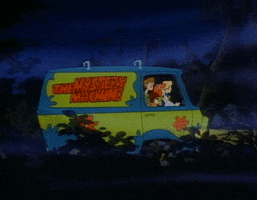
The Broader Pattern of Convenient Timing
These cases—the Angola train wreck, the Titanic, and 9/11—are not isolated incidents. They are part of a broader pattern of catastrophic events where key individuals just happen to avoid disaster. Consider the following:
The Hindenburg Disaster (1937): Several influential figures canceled their plans to board the airship’s final voyage.
The Wall Street Bombing (1920): The explosion killed 38 people but avoided top financial elites, sparking speculation about its true targets and motives.

The COVID-19 Pandemic: Key pharmaceutical and tech elites emerged unscathed and even benefited immensely from policies enacted during the crisis, raising questions about prior knowledge and opportunism.

The Angola Train Wreck in Context
Returning to the Angola tragedy, it’s worth noting the broader implications of Stewart’s death. He was not merely a railroad executive; he was also a banker, and his demise coincided with a period of rapid consolidation in both industries. Rockefeller’s ability to maneuver through the chaos that followed allowed him to solidify Standard Oil’s position, in part by leveraging railroads to undercut competitors. Without Stewart in the picture, Rockefeller faced one less obstacle.
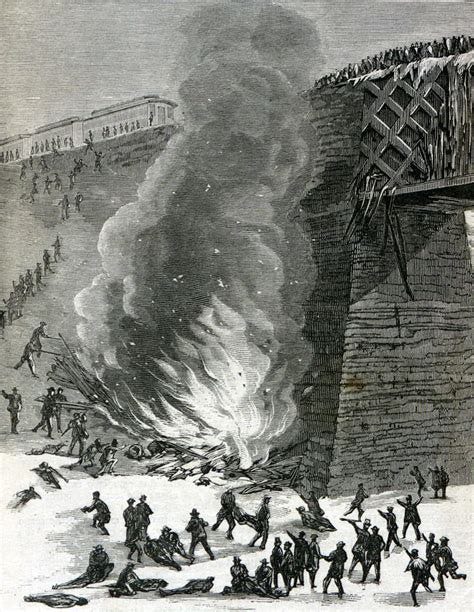
While there’s no smoking gun officially tying Rockefeller directly to the wreck, the timing and the outcomes are too suspicious to ignore. Similar to other disasters throughout history, the Angola train wreck raises uncomfortable questions about the role of powerful individuals in shaping—or avoiding—tragedy.
Coincidence or Conspiracy?
History is full of strange coincidences, but when those coincidences disproportionately favor the powerful, they demand scrutiny. The Angola train wreck and events like it suggest a pattern—a recurring script where disasters conveniently eliminate obstacles for the wealthy while sparing those with the most to gain.
Whether through foreknowledge, manipulation, or sheer luck, these "coincidences" warrant further investigation. After all, how many times can lightning strike in the same place before we start questioning whether it’s being directed?









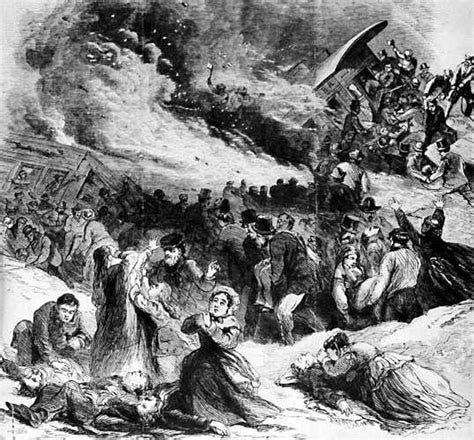


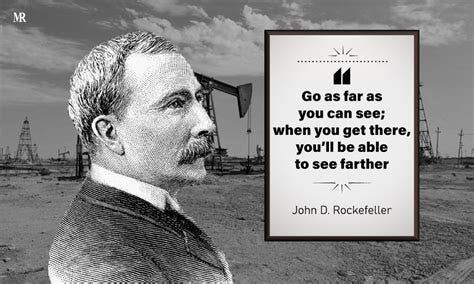


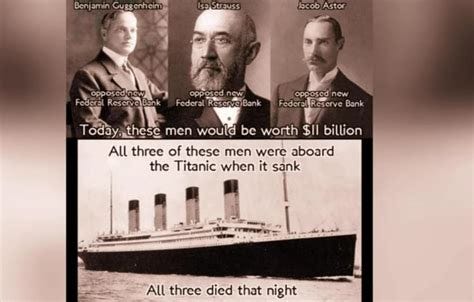
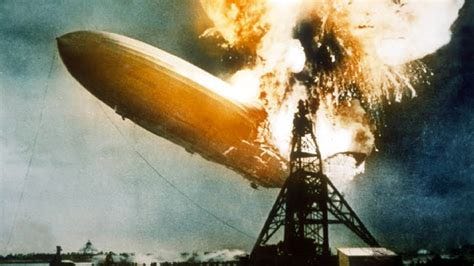



Guilty as the cat with the mouse tail hangin' outta its mouth--an' of course a little later with the Ludlow Massacre the Rockefellers had ta do some serious PR... funny as I was readin' this (I knew nuttin' of this Angola Wreck,) three things came ta mind an' ya nailed two of 'em--yup, Titanic, an' yup too the Hindenburg--from all I gather hydrogen zeppelins were safe as kin be!) Yer only missin' one small puzzle piece--all the steamboats were WRECKED 'tween the 2 world wars an' replaced with oil-based engines... Literally even the passenger steam boats were repurposed fer war to be WRECKED in combat... Steamboats (like yer trains) were all efficient an' could'a (so I read) gone the same speeds in war an' were just as safe.... but hey, OIL is "Gold" SOME say wars (battles at sea) were staged JUST so our fleets of earlier ships / steam boats would be ruined. Whatta nice fambly them Rocky-Fellers...
PS re. 911 there's an even longer list of "who was late" an' "who stayed home" that day... I knew folks that temped at CF... huge losses there back in the day...
PPS I lived blocks from 911, real folks died... many of us had health repercussions--the event was staged as were the non-plane-holograms but deaths were real (this was not the boston marathon in other woids...) an' a lotta "real folks" died... not unlike MaoWhee..
Thank you for this hidden but major historical article. I grew up in Buffalo and lived in towns throughout the region but never heard of the 1867 Angola train wreck. I am 70 and local history is key interest. My late mother as well, a teacher, had many historical books. My grandfather worked for the railroad. History, along with being hidden, is also rewritten by the oligarchs. Tragically the Rockefeller family is continuing to fund death and destruction today and into the future. Evil lurks below all of our history. Outstanding, thanks again -- Sandy, Cheektowaga NY